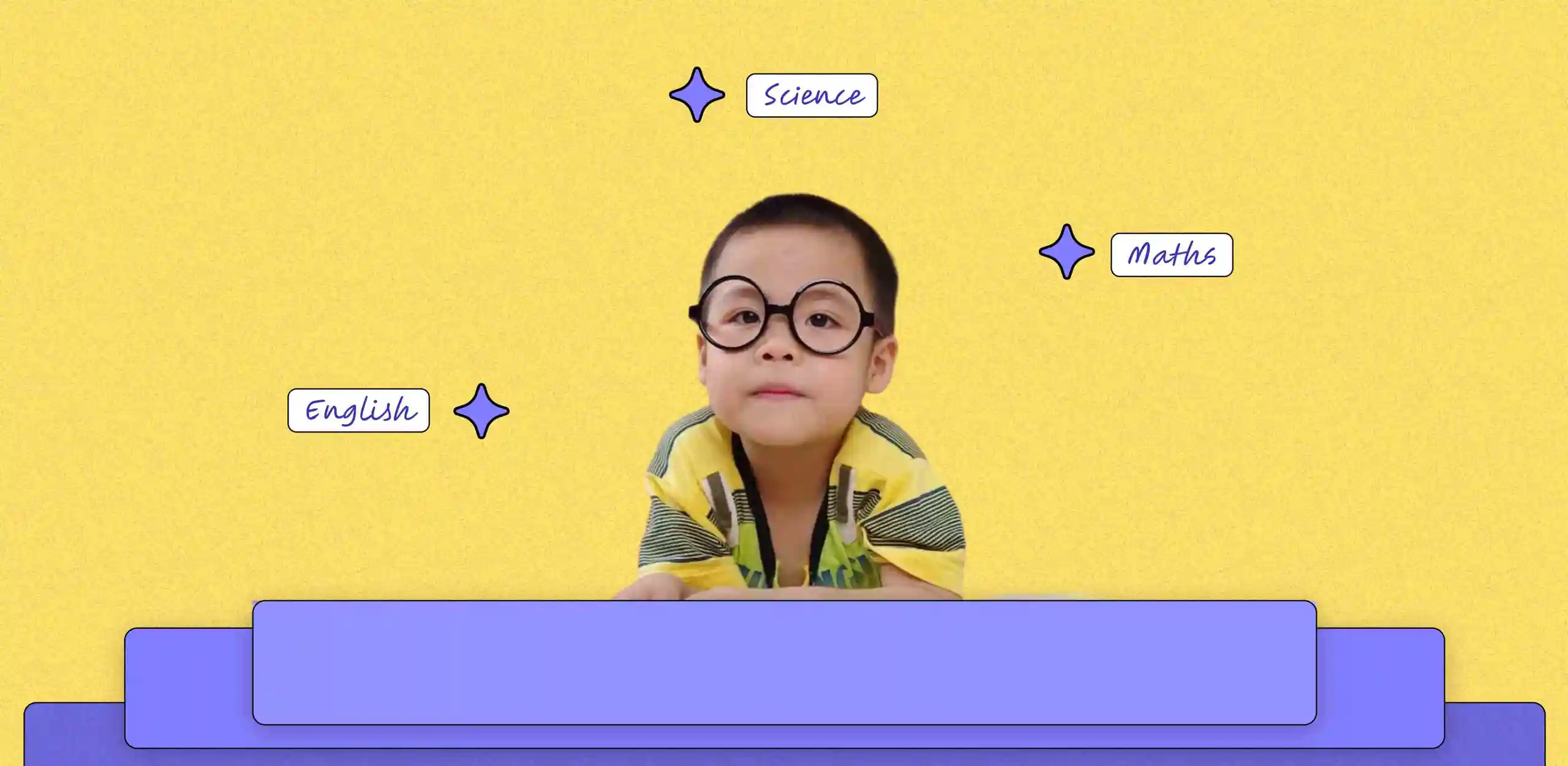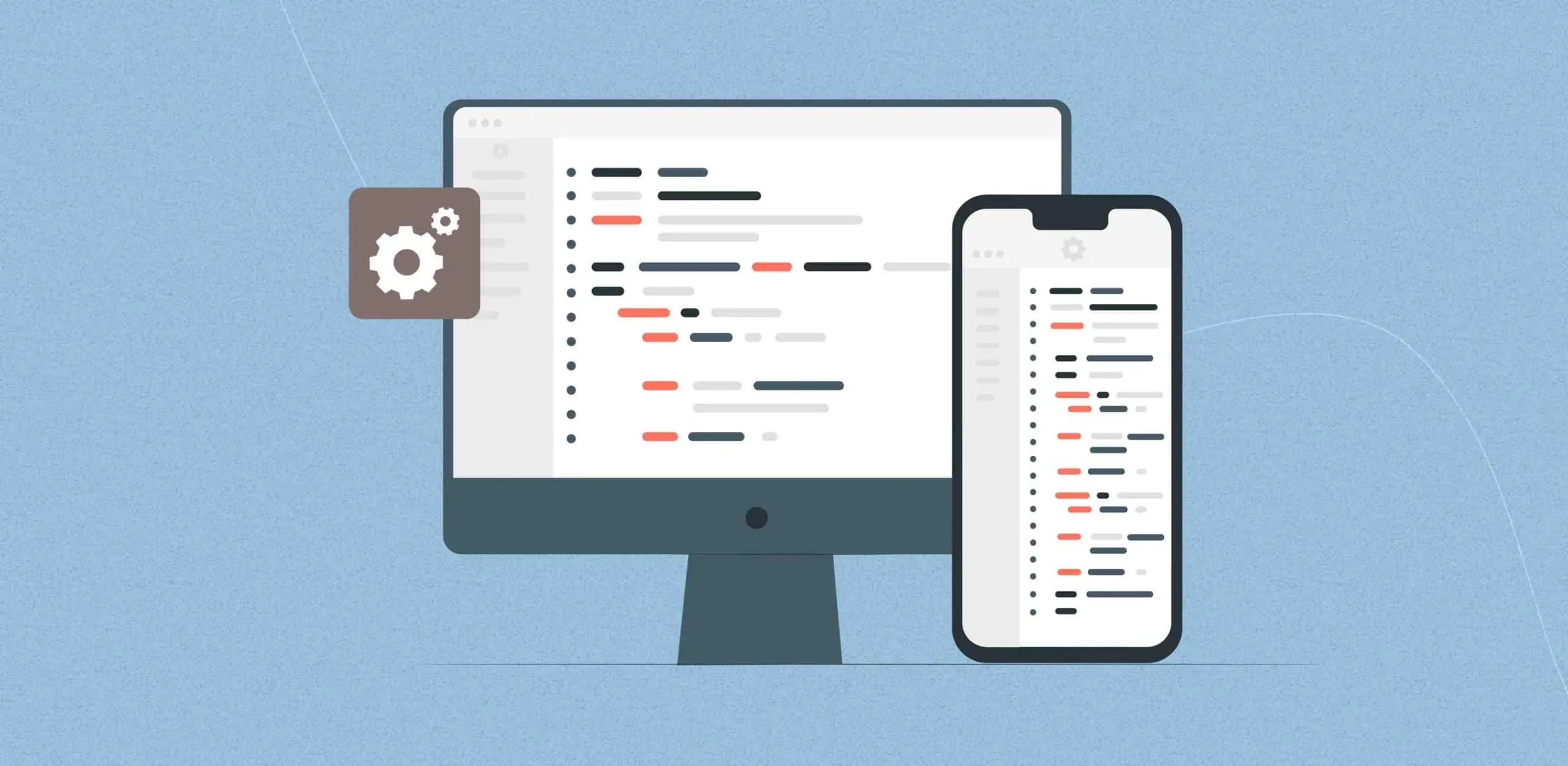Educational app development company specializes in designing and building digital learning solutions that make education accessible, interactive, and personalized through technology. The company combines education, technology, and user experience design to create apps for schools, universities, edtech startups, corporate training, and self-learners. Their goal is to make learning more engaging, data-driven, and adaptable to every learner’s needs.
A future-proof educational app development company offers AI-driven personalization, adaptive learning capabilities, and data analytics to tailor education to each learner’s needs. It integrates cloud-based scalability, cross-platform compatibility, and offline access to ensure seamless learning anywhere. Features like gamification, interactive content, AR/VR-based experiences, and secure user data management make apps engaging and reliable. By combining cutting-edge technology with pedagogical insight, such a company creates learning solutions that evolve with trends, ensuring long-term relevance in the fast-changing edtech landscape.
Let our experts help you design intelligent, scalable, and secure educational solutions that evolve with your learners.
What is Adaptive Learning in AI-Powered Educational Apps?
Adaptive learning in educational apps uses artificial intelligence and data analytics to personalize the learning experience for each student. These systems analyze a learner’s performance, speed, and understanding, then adjust the difficulty, content type, and learning path in real time. Instead of a one-size-fits-all approach, every student gets tailored support — slower progression for difficult topics or advanced challenges when mastery is shown. When educational apps are connected through AI, they can share insights about a student’s performance and preferences to create a seamless, individualized learning journey.
Unlike traditional “one-size-fits-all” models, AI-powered adaptive learning apps tailor lessons for individual learners, offering additional support for those struggling and advanced challenges for faster learners. This personalized approach increases motivation, enhances comprehension, and leads to better learning outcomes for students across all skill levels.
How AI in Educational App Development is Revolutionizing Learning?
Artificial Intelligence (AI) is transforming education by making learning smarter, faster, and more personalized. Unlike traditional learning methods, which often follow a fixed pace and content structure, AI-powered education apps adapt in real time to each student’s needs. This dynamic approach ensures that learners receive the right level of challenge, targeted feedback, and tailored content, helping them master concepts more efficiently. AI also provides valuable insights for teachers, highlighting knowledge gaps, tracking progress, and suggesting interventions. Beyond academics, AI can enhance student engagement through gamification, interactive exercises, and adaptive learning pathways, creating an experience that is both effective and motivating. AI doesn’t just automate learning — it redefines it, making education more accessible, personalized, and outcome-driven for every student.
In today’s rapidly evolving educational landscape, technology is no longer just a support tool—it is the backbone of modern learning. Educational apps powered by these technologies are not only personalizing learning but also reshaping how students engage with content, track progress, and achieve mastery. For educational app development companies, integrating these features isn’t optional—it’s essential to future-proof products and meet the rising expectations of learners and educators alike.
Make informed decisions and select the right eLearning app development company for your business.
Educational App Development Services – A New Era in Learning Innovation
The education sector is undergoing a digital revolution. Traditional classrooms are being supplemented—or even replaced—by interactive, technology-driven learning experiences. At the forefront of this change are AI (Artificial Intelligence) and adaptive learning systems, which are reshaping how students engage with content, how educators track progress, and how learning outcomes are achieved.
For educational app development companies, integrating AI and adaptive learning isn’t just a competitive advantage—it’s a necessity. Apps that embrace these technologies offer personalized, effective, and future-proof learning experiences that meet the needs of modern learners. Here, we explore the essential features that an educational app must offer to stay ahead in this rapidly evolving landscape
Personalized Learning Paths
Every learner is unique, with different strengths, weaknesses, and learning styles. AI-powered educational apps can create personalized learning paths tailored to each individual. By analyzing student behavior, engagement patterns, and performance metrics, these apps can recommend the most relevant content and adjust the learning pace accordingly.
For example, a student struggling with algebra but excelling in geometry can be guided to spend more time on algebra concepts while moving faster through geometry lessons. This level of personalization ensures learners stay motivated, engaged, and confident
Intelligent Tutoring Systems
AI-driven Intelligent Tutoring Systems (ITS) simulate the experience of having a personal instructor. Using Natural Language Processing (NLP), these systems allow learners to ask questions naturally, receive real-time guidance, and get instant feedback.
ITS platforms enhance comprehension by identifying misconceptions and reinforcing weak areas—creating an interactive, responsive, and student-centric learning experience. For businesses, implementing ITS through a custom LMS development company leads to higher learner retention and satisfaction.
Predictive Analytics for Learning Outcomes
By processing large datasets, predictive analytics in education apps identifies students who may struggle before they fall behind. These systems analyze engagement levels, test scores, and behavioral data to generate actionable insights for educators.
For instance, a language-learning app might detect comprehension issues early and automatically recommend remedial exercises or alert the teacher for intervention. Such features ensure proactive, data-driven teaching and improved performance outcomes.
Adaptive Assessments
Traditional assessments are static and may not accurately reflect a learner’s abilities. Adaptive assessments, powered by AI, adjust in real time based on student responses. This ensures that learners are challenged appropriately and that assessments provide meaningful insights into their understanding.
Adaptive assessments also offer detailed feedback, helping learners identify areas of improvement and adjust their study strategies.
AI-Enhanced Gamification in eLearning Apps
Gamification is a proven method for increasing learner engagement. When combined with AI, gamification becomes dynamic and personalized, offering challenges tailored to each learner’s skill level.
Features like leaderboards, badges, and progress trackers can adapt based on individual performance. AI can also provide hints or nudges to prevent frustration and maintain the learner’s motivation throughout the gamified experience.
Multimodal Learning Experiences
Not all learners absorb information in the same way. Some prefer reading, others prefer videos, audio, or interactive simulations. AI-powered education apps can provide multimodal learning experiences, delivering content in formats that match individual preferences.
Augmented reality (AR) and virtual reality (VR) can further enhance learning by offering immersive, hands-on experiences, such as exploring historical sites or conducting virtual experiments.
Voice and Chatbot Assistance
AI-driven voice assistants and chatbots provide learners with on-demand support, guidance, and reminders. They simulate human interaction, making digital learning more intuitive and accessible. Advanced systems can even detect frustration or confusion in a learner’s responses and offer personalized help, creating a more empathetic and responsive learning environment
AI-Driven Content Creation and Recommendations
Manually creating content is time-consuming. AI in eLearning app development automates this process—generating quizzes, summaries, flashcards, and even microlearning modules based on learner progress.
These smart recommendation engines ensure that every piece of content served is relevant, engaging, and perfectly aligned with each user’s skill level.
Data Privacy and Compliance
Data protection is paramount. A reputable educational app development company must ensure compliance with GDPR, COPPA, and FERPA while building AI-based education apps.
Transparent policies, parental controls, and encryption-based data management build trust among learners and institutions alike, ensuring ethical and secure use of learning data.
Continuous Improvement through AI Feedback
AI enables the continuous improvement of educational apps. By learning from user behavior, engagement patterns, and feedback, the system can refine learning paths, content recommendations, and assessment methods.
Reinforcement learning models can optimize the app experience, ensuring that it evolves alongside learners’ needs and keeps pace with educational standards.
Read how Virtual Assistant Avatars in E-Learning are enhancing digital education experiences.
Maximizing ROI: How AI and Adaptive Learning Boost Educational App Value
Feature | Investment Required | Expected Impact | ROI Potential |
Personalized Learning Paths | Medium | Higher learner engagement & retention | High |
Intelligent Tutoring Systems | High | Reduced dependency on human tutors; better learning outcomes | Very High |
Predictive Analytics | Medium | Early identification of struggling learners; targeted interventions | High |
Adaptive Assessments | Medium | Accurate skill assessment; personalized progression | High |
AI-Enhanced Gamification | Medium | Increased motivation and completion rates | Medium–High |
Multimodal Learning Experiences | High | Improved comprehension and accessibility | High |
Voice & Chatbot Assistance | Medium | 24/7 learner support; reduced administrative workload | Medium |
AI-Driven Content Creation | Medium | Reduced educator workload; rapid content scaling | Very High |
Data Privacy & Compliance | Medium | Builds trust; avoids costly legal issues | High |
Continuous AI Feedback & Optimization | Medium | Continuous improvement in engagement & outcomes | Very High |
Investing in AI and adaptive learning features may involve upfront costs, but the long-term benefits—improved engagement, retention, and scalability—translate to very high ROI. Features like intelligent tutoring, AI content creation, and continuous feedback often deliver the highest return because they both reduce costs and enhance learning.
Real-Life Experiences That Made an Impact
- Duolingo: Turning Language Learning into a Habit
Duolingo, an AI-driven language-learning app, uses adaptive learning and gamification to tailor lessons to individual users. Learners receive instant feedback and personalized exercises based on their performance. For millions of users worldwide, this approach has transformed language learning from a daunting task into a daily habit, significantly improving engagement and retention rates. - Khan Academy: Personalized Learning at Scale
Khan Academy leverages data analytics to track student performance and recommend lessons that fit individual learning paths. Teachers can see detailed progress reports and intervene when students struggle. This personalized approach has helped learners in underserved communities access quality education and achieve measurable improvements in subjects like math and science. - Photomath: Instant Problem-Solving Support
Photomath allows students to scan math problems and receive step-by-step solutions instantly. By combining AI with educational guidance helps learners understand concepts rather than just providing answers. Students report improved confidence in tackling challenging math problems, showing the impact of intelligent tutoring in real-life learning.
These examples show something remarkable: AI and adaptive learning don’t just deliver knowledge—they inspire, empower, and transform lives. For entrepreneurs and educators, this is your moment. Partnering with a skilled educational app development company allows you to bring your vision to life—an app that educates, engages, and leaves a lasting impact. From personalized learning paths to gamified experiences, predictive analytics, and real-time feedback, your app can become a catalyst for positive change in education worldwide
An app helping learners overcome challenges, achieve mastery, and even discover a love for learning they never knew existed. That’s the power of AI-driven educational apps—and that’s the opportunity waiting for those ready to innovate.
Future Trends in eLearning App Development and Adaptive Learning
The future of e-learning, driven by emerging education app development companies, will be defined by highly personalized, immersive, and integrated learning experiences. These advancements go beyond simple video lectures and quizzes to fundamentally change how knowledge is acquired, assessed, and certified.
Hyper-Personalized Adaptive Learning
Future e-learning apps will move past basic customization to offer truly individualized learning journeys.
- AI-Powered Neuro-Adaptive Paths: New app development will leverage Artificial Intelligence (AI) and Machine Learning (ML) to constantly analyze a student’s cognitive state (through input patterns, response times, and even potential biometric data via wearable tech). The app will then dynamically adjust the curriculum, content type, pace, and difficulty in real-time. This creates an optimal flow state for maximum retention.
- Generative AI Tutors: Futuristic apps will include Generative AI models that function as infinitely patient, on-demand, and hyper-specialized tutors. They won’t just answer questions; they’ll create custom practice problems, generate alternative explanations tailored to a student’s known analogies or interests, and simulate complex scenarios for problem-solving.
- Predictive Intervention Systems: Apps will use ML to predict learning plateaus or potential disengagement before they occur. The system will proactively introduce different content formats (e.g., switching from a text lesson to a short interactive AR model) or push motivational micro-challenges to re-engage the learner.
Immersive and Experiential Learning
Virtual and augmented realities will bridge the gap between abstract concepts and real-world applications.
- Extended Reality (XR) Field Trips and Labs: Educational app developers will create seamless Mixed Reality (MR) experiences that blend Virtual Reality (VR) and Augmented Reality (AR). Students could explore a simulated 17th-century European city to learn history or conduct dangerous chemistry experiments in a virtual lab without physical risk.
- AR Overlays for “Learning in the Wild”: Apps will use smart glasses or phones to overlay interactive learning content onto the physical world, allowing a student to point their device at an engine and see animated labels and repair instructions, or point it at a plant to see its full cellular structure.
- Haptic Feedback Learning: Integration with advanced haptic devices will add a sense of touch to virtual learning. For medical training, this could mean feeling the subtle resistance of virtual tissue during a simulated surgery, significantly enhancing skill transfer and memory encoding.
Seamless Integration and “Learning Everywhere”
The learning environment will become fully integrated into daily life and professional workflows.
- Workflow-Integrated Microlearning: Apps will deliver learning content directly into professional tools (e.g., Slack, Microsoft Teams, code editors) at the moment a user needs it—a concept known as “Just-in-Time Learning.” For example, a developer facing a specific error might receive a 30-second instructional video or a code snippet directly within their development environment.
- Ambient Learning Systems (IoT): Leveraging the Internet of Things (IoT), future e-learning systems will create an ambient learning environment where educational content is passively absorbed. This could involve smart speakers delivering relevant historical facts while a student walks through a city, or a smart device providing a quick quiz on nutrition facts while they are preparing a meal.
These innovations are moving the concept of education from a scheduled, centralized event to a continuous, self-directed, and context-aware life experience.
Custom Education App Development is tailoring learning experiences for institutions. Learn how.
Conclusion: The Mandate for Future-Proof Education
The integration of AI and Adaptive Learning is no longer a luxury for e-learning; it is the defining feature of the future-proof educational app. For any educational app development company aiming to lead the market, offering these capabilities is an absolute necessity.
The shift is fundamental: we are moving from static, one-size-fits-all digital content to dynamic, data-driven, and highly personal learning experiences. AI doesn’t just grade tests; it operates as the intelligence core — diagnosing learning gaps, curating content, predicting performance, and coaching the student toward mastery. Ultimately, an educational app development company’s commitment to AI and Adaptive Learning is a promise to its users: a promise to deliver the most effective, efficient, and equitable path to knowledge in the digital age. This is the new benchmark for excellence in EdTech.
Ready to create your own AI-powered education app? Partner with Enfin, a leading educational app development company, to design future-ready eLearning solutions that engage, inspire, and scale globally.
Let’s transform your business for a change that matters!
F. A. Q.
Do you have additional questions?
What is AI-driven adaptive learning in educational apps?
AI-driven adaptive learning uses artificial intelligence and data analytics to tailor the learning experience for each student. It analyzes performance, behavior, and preferences to adjust lesson difficulty, format, and pace in real time, ensuring every learner gets a personalized learning journey.
How does AI improve the effectiveness of educational apps?
AI enhances educational apps by enabling real-time personalization, predictive insights, and intelligent tutoring. It identifies learning gaps, adjusts difficulty levels, and provides immediate feedback — resulting in improved engagement, retention, and academic performance.
Why is adaptive learning important for modern education?
Adaptive learning ensures that no two students follow the exact same path. By dynamically responding to individual needs and progress, it helps struggling learners receive extra support and advanced learners move ahead faster, promoting equity and efficiency in education.
What are some key AI-powered features every educational app should include?
Essential AI features include:
- Personalized learning paths
- Intelligent tutoring systems
- Predictive analytics
- Adaptive assessments
- AI-driven gamification
- Voice/chatbot assistance
- Multimodal content delivery
- Continuous feedback and optimization
How do AI and gamification work together in educational apps?
AI and gamification combine to make learning more engaging. While gamification adds rewards, challenges, and leaderboards, AI personalizes these elements based on the learner’s ability and progress, ensuring motivation without frustration.
How do educational app development companies ensure data privacy with AI integration?
Reputable educational app development companies comply with data protection laws such as GDPR, COPPA, and FERPA. They implement encryption, access controls, parental permissions, and transparent privacy policies to ensure data is stored and processed securely.
Can AI replace human teachers or tutors?
No — AI complements educators rather than replacing them. While AI can automate repetitive tasks, personalize content, and provide real-time analytics, teachers remain essential for mentorship, emotional support, and higher-level critical thinking guidance.
What are real-world examples of AI and adaptive learning in education?
Notable examples include:
- Duolingo: AI-driven language lessons with gamified feedback
- Khan Academy: Personalized progress tracking and targeted interventions
- BYJU’S: Adaptive learning for K–12 students based on performance
- Photomath: Instant AI-based problem-solving assistance
These apps demonstrate how AI can make learning accessible, efficient, and motivating.















